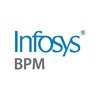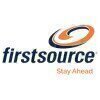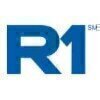
i
Omega
Healthcare
Filter interviews by
Omega Healthcare Senior Executive Interview Questions and Answers
6 Interview questions
Inclusive denial is the act of denying someone access or participation in a group or activity based on their identity or characteristics.
Inclusive denial can occur in various settings such as workplaces, schools, or social groups.
It often involves excluding individuals based on factors like race, gender, sexual orientation, or disability.
Examples include refusing to hire someone because of their ethnicity or not a...
Auth is short for authentication, the process of verifying the identity of a user or system.
Auth is required to ensure that only authorized users have access to sensitive information or resources.
It helps prevent unauthorized access and protects against security threats.
Common methods of authentication include passwords, biometrics, and two-factor authentication.
For example, when you log into your email account, y...
Types of claim forms include health insurance claim forms, auto insurance claim forms, and property insurance claim forms.
Health insurance claim forms
Auto insurance claim forms
Property insurance claim forms
A 'no claim on file' status indicates that there are no pending or submitted claims for a particular insurance policy.
Indicates that the policyholder has not filed any claims recently.
Can be beneficial for maintaining lower premiums, as fewer claims can lead to discounts.
Example: A homeowner with a 'no claim on file' status may receive a discount on their home insurance premium.
It may also reflect a good risk prof...
Listening and repeating a conversation helps identify errors and enhances understanding of the content.
Active listening is crucial; focus on tone and context.
Identify grammatical errors, such as subject-verb agreement.
Note any mispronunciations that could change meaning.
Summarize the main points to ensure comprehension.
Example: If the conversation is about a meeting, clarify the agenda discussed.
Types of denial include simple denial, minimization, projection, and inclusive denial.
Simple denial is refusing to acknowledge the reality of a situation.
Minimization is downplaying the significance of a situation.
Projection is attributing one's own thoughts or feelings to someone else.
Inclusive denial involves a group of people collectively denying a reality or truth.
Omega Healthcare Senior Executive Interview Experiences
12 interviews found
I applied via Naukri.com and was interviewed in Oct 2023. There were 2 interview rounds.
(3 Questions)
- Q1. Explain inclusive denial
- Ans.
Inclusive denial is the act of denying someone access or participation in a group or activity based on their identity or characteristics.
Inclusive denial can occur in various settings such as workplaces, schools, or social groups.
It often involves excluding individuals based on factors like race, gender, sexual orientation, or disability.
Examples include refusing to hire someone because of their ethnicity or not allowi...
- Q2. Difference between hmo and ppo
- Q3. What is your current take home
- Ans.
My current take-home pay reflects my experience and the responsibilities I manage in my role as a Senior Executive.
My current take-home pay is competitive within the industry, reflecting my years of experience and leadership skills.
For example, I have successfully led multiple projects that increased revenue by 20%, which justifies my compensation.
Additionally, my pay includes performance bonuses tied to company succes...
(4 Questions)
- Q1. Authorization denial
- Q2. Timely filing limit
- Q3. Parts of medicare
- Q4. Cpt code dx xode and modifier

(3 Questions)
- Q1. All technical questions
- Q2. Non covered charges and answer
- Q3. PriorAuthorization and retro auth
(1 Question)
- Q1. Salary discussion and expected time of joining
I applied via Walk-in and was interviewed in May 2023. There were 4 interview rounds.
General aptitude mostly about English skill
(1 Question)
- Q1. Typing speed minimum 25 word per minute
(1 Question)
- Q1. They gave u a headphone to listen English conversation and u have to repeat it, and found error in the conversation, and type your understanding of the conversation
- Ans.
Listening and repeating a conversation helps identify errors and enhances understanding of the content.
Active listening is crucial; focus on tone and context.
Identify grammatical errors, such as subject-verb agreement.
Note any mispronunciations that could change meaning.
Summarize the main points to ensure comprehension.
Example: If the conversation is about a meeting, clarify the agenda discussed.
(1 Question)
- Q1. It mostly about self intro
Interview Preparation Tips
I applied via Referral and was interviewed before Oct 2023. There were 3 interview rounds.
(2 Questions)
- Q1. Tell about yourself
- Ans.
Experienced Senior Executive with a proven track record in leading teams and driving business growth.
Over 10 years of experience in senior leadership roles
Strong strategic planning and decision-making skills
Proven ability to drive revenue growth and increase profitability
Effective team leader with a focus on collaboration and communication
Track record of successfully implementing organizational change and driving innov...
- Q2. Why you interested in this job
- Ans.
I am interested in this job because of the opportunity to lead a team and drive strategic initiatives.
Passion for leadership and team development
Excitement for driving strategic initiatives and making an impact
Alignment with company values and goals
Any random about current situation going on
(3 Questions)
- Q1. Why should I hire you
- Ans.
I have a proven track record of driving results, strong leadership skills, and a strategic mindset.
I have successfully led multiple teams to exceed targets and deliver projects on time and within budget.
My strategic thinking and problem-solving abilities have consistently led to innovative solutions and business growth.
I possess strong communication skills and the ability to build and maintain relationships with key st...
- Q2. Where you see your self in next 5 years
- Ans.
In the next 5 years, I see myself leading a team of professionals, driving strategic initiatives, and making a significant impact on the organization's growth.
Continuing to develop my leadership skills through ongoing training and mentorship
Taking on more responsibilities and challenging projects to further my career progression
Building strong relationships with key stakeholders and industry leaders
Contributing to the ...
- Q3. What is non cover charges
- Ans.
Non cover charges refer to fees or costs that are not included in the initial price or quote.
Non cover charges are additional fees that may be incurred on top of the base price.
These charges are typically not disclosed upfront and may come as a surprise to the customer.
Examples of non cover charges include service fees, taxes, gratuity, and processing fees.
I appeared for an interview before May 2024, where I was asked the following questions.
- Q1. Self intro and process related questions
- Q2. Denial based questions
I applied via Referral and was interviewed before Nov 2022. There were 2 interview rounds.

(5 Questions)
- Q1. Just basic AR scenario
- Q2. I git question what is no claim on file
- Ans.
A 'no claim on file' status indicates that there are no pending or submitted claims for a particular insurance policy.
Indicates that the policyholder has not filed any claims recently.
Can be beneficial for maintaining lower premiums, as fewer claims can lead to discounts.
Example: A homeowner with a 'no claim on file' status may receive a discount on their home insurance premium.
It may also reflect a good risk profile f...
- Q3. What is auth why it's required??
- Ans.
Auth is short for authentication, the process of verifying the identity of a user or system.
Auth is required to ensure that only authorized users have access to sensitive information or resources.
It helps prevent unauthorized access and protects against security threats.
Common methods of authentication include passwords, biometrics, and two-factor authentication.
For example, when you log into your email account, you ar...
- Q4. What will we do if we got paid scenario
- Q5. What are the type of claim form
- Ans.
Types of claim forms include health insurance claim forms, auto insurance claim forms, and property insurance claim forms.
Health insurance claim forms
Auto insurance claim forms
Property insurance claim forms
Interview Preparation Tips
I applied via Recruitment Consulltant and was interviewed before Aug 2022. There were 2 interview rounds.

(4 Questions)
- Q1. What is OON ?
- Q2. Out of Network Provider
- Q3. What are the types of denial and what is Inclusive denial?
- Ans.
Types of denial include simple denial, minimization, projection, and inclusive denial.
Simple denial is refusing to acknowledge the reality of a situation.
Minimization is downplaying the significance of a situation.
Projection is attributing one's own thoughts or feelings to someone else.
Inclusive denial involves a group of people collectively denying a reality or truth.
- Q4. The amount paid in claim was included to another code in same claim or different claim / or different Dos
Interview Preparation Tips
- Denial Management
- Communication Skills
- Verbal Communication
- English Language
- Professional Communication
I applied via Recruitment Consulltant and was interviewed before Jan 2023. There were 2 interview rounds.
(2 Questions)
- Q1. Personal Information including experience
- Q2. Salary discussion
(1 Question)
- Q1. About the RCM understanding, denials, POS, Denial codes and analysis skills
I applied via Naukri.com and was interviewed before Oct 2022. There were 2 interview rounds.

(2 Questions)
- Q1. About previous work experience
- Q2. Denial management questions
I applied via Recruitment Consulltant and was interviewed before May 2022. There were 3 interview rounds.

(2 Questions)
- Q1. Introduction about me
- Q2. Little AR related questions
(4 Questions)
- Q1. Tell about yourself
- Q2. What is medical necessity
- Q3. What is medicare and Medicaid
- Q4. What is prior authorization
Top trending discussions






Omega Healthcare Interview FAQs
The duration of Omega Healthcare Senior Executive interview process can vary, but typically it takes about less than 2 weeks to complete.
Tell us how to improve this page.
Omega Healthcare Interviews By Designations
- Omega Healthcare Medical Coder Interview Questions
- Omega Healthcare AR Associate Interview Questions
- Omega Healthcare Trainee Medical Coder Interview Questions
- Omega Healthcare Processing Executive Interview Questions
- Omega Healthcare Senior Medical Coder Interview Questions
- Omega Healthcare Medical Reviewer Interview Questions
- Omega Healthcare Accounts Receivable Caller Associate Interview Questions
- Omega Healthcare Senior Executive Interview Questions
- Show more
Interview Questions for Popular Designations
Overall Interview Experience Rating
based on 14 interview experiences
Difficulty level
Duration
Senior Executive Interview Questions from Similar Companies
Omega Healthcare Senior Executive Reviews and Ratings
based on 170 reviews
Rating in categories
|
Medical Coder
1.7k
salaries
| ₹2 L/yr - ₹6 L/yr |
|
AR Associate
1.2k
salaries
| ₹1.7 L/yr - ₹4.5 L/yr |
|
Senior Medical Coder
1.1k
salaries
| ₹3.4 L/yr - ₹7.2 L/yr |
|
AR Executive
1.1k
salaries
| ₹1.6 L/yr - ₹5 L/yr |
|
AR Caller
960
salaries
| ₹1.8 L/yr - ₹6 L/yr |

Teleperformance

Concentrix Corporation

iEnergizer

WNS
- Home >
- Interviews >
- Omega Healthcare Interview Questions














